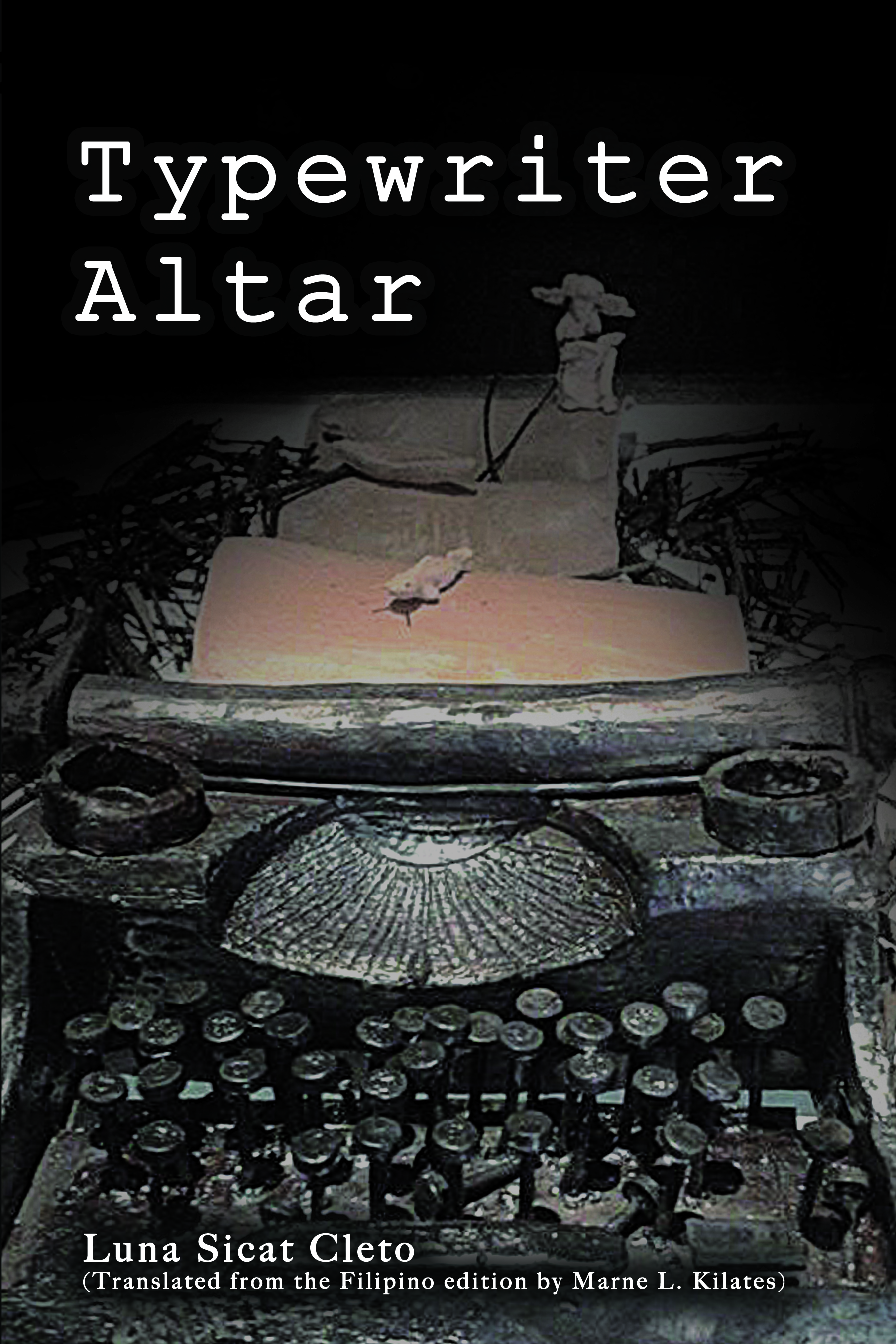
Typewriter Altar (Translated from the Filipino edition by Marne L. Kilates)
Typewriter Altar is a story of the power of recollection, re-membrance, and redemption. It begins with the narrator’s recurring dream. Books with wordless pages are strewn everywhere in an empty, old house wherein a mood of abandonment reigns. In the dream, Laya thinks she can hear her parents’ voices, but silence would follow as soon as she attempts to trace these sounds. Always, she would wake up, and the emptiness of that house and those pages seem accusatory. We find out that Laya has abandoned her pen, and her dream of writing, because she opted to pursue domestic bliss. Ironically that dream is also unrealized—Laya, like many Filipinas of her age and class, does not have her own home, has a humdrum job, and secretly wishes her soul could wander somewhere else. This insight leads Laya into remembering her childhood home and her parents’ early years in marriage. In the work, memory bleeds into the then and the now, ushering the reader into a ringside glimpse of an artist’s life.
About the Author
Luna Sicat Cleto has published two novels, Makinilyang Altar (University of the Philippines Press, 2002) and Mga Prodigal (Anvil, 2010). Some of the awards she received were from the Don Carlos Palanca Memorial Awards for Literature, the Madrigal Gonzales Best First Book, and the Cultural Center of the Philippines for her poetry, prose, and plays. She is the translator of John Green’s An Abundance of Katherines (NBS and Anvil, 2015) and co-translator of Eve Ensler’s The Vagina Monologues and William Shakespeare’s Othello. Her works in fiction, poetry, and essays have also been anthologized in many publications. She currently teaches creative writing and literature appreciation at the University of the Philippines Diliman, where she is an associate of the Likhaan: UP Institute of Creative Writing.
